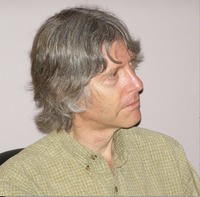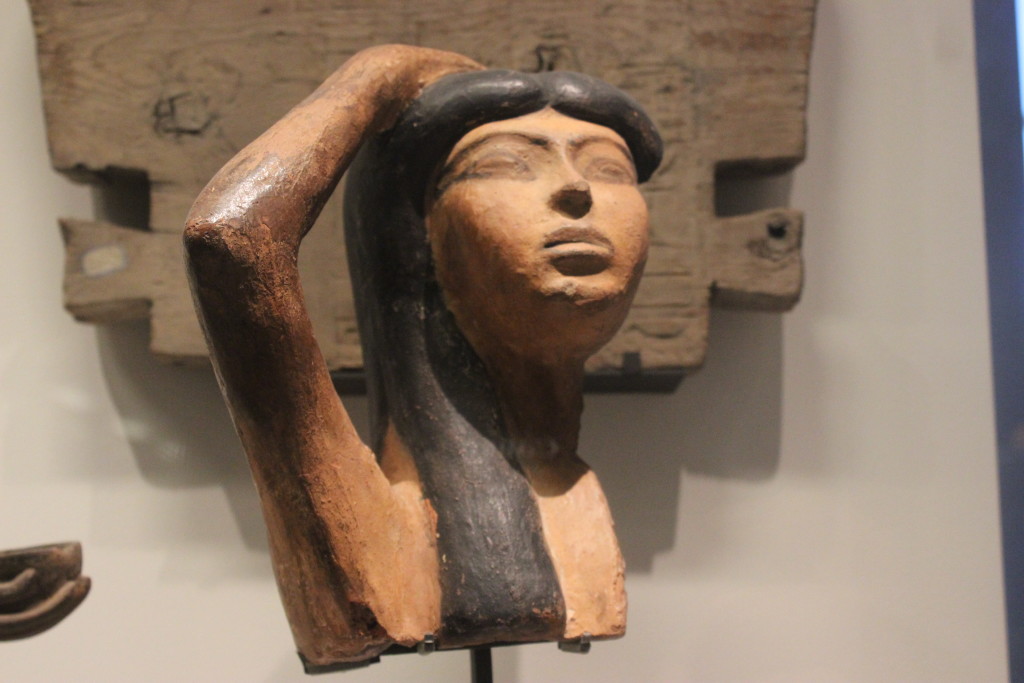This issue to this article contains two companion pieces by Will Alexander. Cover art by Giovanni Berton.
Will Alexander was born and raised in Los Angeles and resides there to this day. He alludes to a painful process of self-education in his first book, Vertical Rainbow Climber: “Outside myself and bleeding on my own discoveries I discover in a cave Pythagorean lodestones broken in the air of Chaldean snake myths.” During those years of self-discovery, Alexander found himself becoming the conduit for a primal and oracular speech. The visionary writings of Will Alexander participate in, but can hardly be confined to, the pan-African surrealist tradition of Aime Césaire. The explosion of his language engulfs almost every continent and sweeps away the categories that separate poetry and philosophy, myth and science.
As a young man, Alexander attended UCLA and participated in the political and literary tumult of sixties culture in Los Angeles. Along the way, he met and befriended other surrealist poets, most notably Philip Lamantia and Jayne Cortez, as well as making contact with members of the Chicago Surrealist Group. While still in high school, Alexander became aware of the active jazz scene in Los Angeles, sneaking into clubs as an underage youth and conversing with many prominent musicians. The link between jazz improvisation and surrealist automatism, never fully explored by the Paris surrealists, has always been emphasized by American surrealists and is strongly manifested in the writings of Will Alexander. But it wasn’t until somewhat later in his life that Alexander began to play music himself, performing on piano (he had taken lessons as a child) in jazz and experimental music milieus.
Since the publication of Vertical Rainbow Climber in 1987, Alexander has authored dozens of books and risen to international prominence. While most of Alexander’s works consist of poetry collections, he has also published several volumes of essays and plays. In all of these works, the fiery, metamorphic substance of Alexander’s style remains constant, whether poured into the vessel of a poem, an essay, or a play. Likewise, even as much of his work gives high priority to representing the shape-shifting propensities of Being, Alexander’s own identity as poetic maker has remained remarkably constant over the course of his career. An extract from his earliest book could be set beside another from his latest to demonstrate the essential continuity of a voice that seems to have emerged once and for all, forged in some cataclysm akin to the one that created the chemical elements.
At the same time, Alexander’s voice speaks to its situation—social, political, ecological—in the Anthropocene. Perhaps such a voice could only have emerged as the world-system is poised to undergo a phase shift into some new and unprecedented configuration. Indeed, the apocalyptic qualities of this shift are clearly mirrored in the configuration of Alexander’s words. Anticipating a collective leap of human consciousness comparable to the Mind’s original emergence in Africa, Alexander reports on the “world as it is today” as if from a standpoint in the future, from an alterity in which this momentous leap has already occurred.
As the partisan of energy as a form of imagination, Alexander relentlessly critiques linear conceptions of cause and effect, along with all mechanistic modalities of thought and practice. For Alexander, such modalities represent enslavements of energy, the imposition of gridlike coordinate patterns upon a free-flowing and infinite substance. Alexander upholds surrealism and African animism, in particular, as exemplary of the imagination engaged in struggle against what Manuel De Landa has called “linear equilibrium structures.” Against the “linear Babels” of alienated discourses, Alexander argues for “a new perpendicular burst, transmuting in demeanour,” for a language in which the vocabularies of magic and science become (once again, but as never before) interchangeable.
The force of Alexander’s creative imagination is such that it must overflow the limits of language itself, taking the forms of visual art and music. Alexander’s artworks—reproduced on the covers of many of his books—undulate with biomorphic patterns, at once abstract and figurative, that recall the work of Miró and Matta. In the broad spectrum of Alexander’s practice, light transmutes into sound, as the notes of his piano-playing—often a series of meditative, harmonic progressions—seem to follow the complex flow of his drawings and paintings. The work of Will Alexander shows what a “unified field theory” of the creative imagination must look like, prefiguring the (r)evolutionary leap on which our survival depends.

Andrew Joron was raised in Stuttgart, Germany, Lowell, MA, and Missoula, MT. He studied under anarchist philosopher Paul Feyerabend at UC Berkeley, obtaining a BA in philosophy of science. Joron began writing science-fiction poetry before turning to surrealist-influenced lyric, reflecting his association with Philip Lamantia. His translations from German include philosopher Ernst Bloch’s Literary Essays.





















































